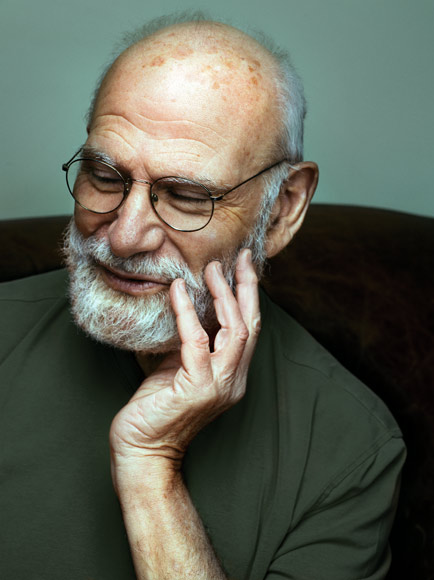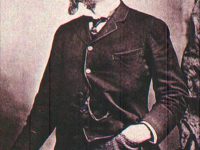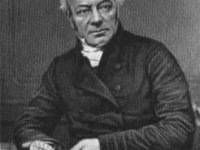
Oliver Sacks. photo: Maria Popova, CC BY-SA 3.0, via Wikimedia Commons
On July 9, 1933, British neurologist and writer Oliver Sacks was born. He was Professor of Neurology at New York University School of Medicine and the author of numerous best-selling books, including several collections of case studies of people with neurological disorders.
Oliver Sacks – Youth and Education
Oliver Sacks was born in London into a family of physicians and scientists and he earned his medical degree at Oxford University. Since 1965, he has lived in New York, where he is a practicing neurologist. Sacks served as a Professor of Neurology and Psychiatry at Columbia University Medical Center between 2007 and 2012 and is currently professor of neurology at the NYU School of Medicine, where he practices as part of the NYU Comprehensive Epilepsy Center. He is also a visiting professor at the University of Warwick.
A Consulting Neurologist
Sacks’ days as a consulting neurologist for Beth Abraham Hospital in the Bronx began in 1966. There, Sacks met many extraordinary patients who spent many years in ‘frozen’ states and were alike human statues unable to move themselves. As Sacks started his research on the topic, he realized that these patients were survivors of the great pandemic of sleepy sickness that had swept the world from 1916 to 1927. He started treating them with an experimental drug titled L-dopa. The patients came back to life and became also subject to his book ‘Awakenings‘ and the inspired feature film with Robert De Niro and Robin Williams. In the movie, the latter portraits a fictionalized Oliver Sacks (Malcolm Sayer) who cures several patients including Leonard Lowe (Robert De Niro) who have to cope with their new life.
The Famous Case Studies
Oliver Sacks is probably best known for his collection of case histories from the far borderlands of neurological experience, ‘The Man Who Mistook His Wife for a Hat‘ and ‘An Anthropologist on Mars‘. In his works, Sacks describes patients struggling to live with conditions ranging from Tourette’s syndrome to autism, parkinsonism, musical hallucination, epilepsy, phantom limb syndrome, schizophrenia, retardation, and Alzheimer’s disease. Sacks investigated the world of Deaf people and sign language in Seeing Voices, and a rare community of colorblind people in ‘The Island of the Colorblind‘. It is known that Sacks waged a lifelong battle with prosopagnosia, known popularly as face blindness, which he discussed at length in a 2010 New Yorker piece. In 2010, Sacks addressed the loss of his stereoscopic vision due to treatment, nine years earlier, for an ocular melanoma in his right eye, then expanded on it in a book, The Mind’s Eye, published in October 2010.
The Man Who Mistook His Wife for a Hat
In his bestseller The Man Who Mistook His Wife for a Hat, Oliver Sacks tells twenty stories of people who have fallen out of “normality” because physical changes or injuries to the brain have caused mental disorders. Sacks writes: “A tiny brain injury, a small tumult in cerebral chemistry – and we get into another world” The book is written in a generally understandable way and hardly deals with the medical-neuropsychological side, but rather illustrates the world in which these people live. It explains how perception depends solely on the brain and how reality arises there. Sack’s seriously and exciting at the same time describes how it can be that a man confuses his wife with a hat or that a patient sees things but cannot call them by name, such as identifying a rose as a “red, folded structure with a straight green appendage“. The cover story became the subject of Michael Nyman‘s opera of the same name in 1987.
The Poet Laureate of Medicine
The New York Times has referred to Oliver Sacks as ‘the poet laureate of medicine‘, and in 2002 he was awarded the Lewis Thomas Prize by Rockefeller University, which recognizes the scientist as poet. Sacks is also an honorary fellow of both the American Academy of Arts and Letters and the American Academy of Arts and Sciences.
Oliver Sacks died on August 30, 2015, in New York City, at age 82.
What hallucination reveals about our minds | Oliver Sacks, [5]
References and Further Readings:
- [1] Oliver Sacks Website
- [2] Oliver Sacks Interview at The Economist
- [3] Face-Blind. Why are some of us terrible at recognizing faces? – by Oliver Sacks
- [4] Oliver Sacks at Wikidata
- [5] What hallucination reveals about our minds | Oliver Sacks, TED @ youtube
- [6] Awakenings (1990) at IMDB
- [7] Cowles, Gregory (30 August 2015). “Oliver Sacks, Neurologist Who Wrote About the Brain’s Quirks, Dies at 82”. The New York Times
- [8] Oliver Sacks collected news and commentary at The New York Times
- [9] Sacks, Oliver; Sacks, Oliver W. (January 1989). Seeing Voices: A Journey Into the World of the Deaf – Oliver W. Sacks
- [10] Couser, G. Thomas (December 2001). “The Cases of Oliver Sacks: The Ethics of Neuroanthropology”. The Poynter Center, Indiana University.
- [11] Timeline for Oliver Sacks, via Wikidata





